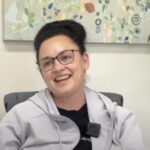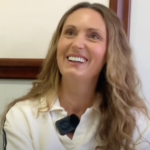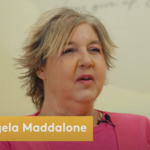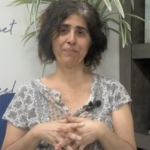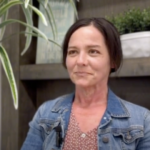Medically Reviewed by: Dr. Bautista
Our Editorial Policy
Updated on: March 9, 2020
Basal Cell Carcinoma Treatment
Basal cell carcinoma is the most common form of skin cancer. More than 4 million people are diagnosed with it every year. This form of skin cancer originates in the basal cells, which exist in the skin and are responsible for producing new skin cells as old skin cells expire.
Basal cell carcinoma most commonly occurs in older individuals, though it can potentially affect anyone of any age. Despite how common basal cell carcinoma is, it is a slow-growing skin cancer, making it easy to treat in a potential patient. Most cases of basal cell carcinoma are curable and do not result in significant damage. Read on to learn more about basal cell carcinoma, how it can be treated, as well as natural treatment modalities.
Causes and Risk Factors
As with all other forms of cancer, basal cell carcinoma is caused by DNA damage that causes cells to grow unregulated. As the cancer cells grow out of control, they form into lesions or large tissue masses known as tumors. If left untreated, the cancerous cells can eventually spread to other organs and other areas of the body.
The exact cause of this cellular mutation is not well understood, but doctors do know that long-term exposure to ultraviolet radiation (from the sun or from tanning lights) can contribute to the DNA damage that results in basal cell carcinoma. Environmental factors also contribute to the development of squamous cell carcinoma and melanoma. For example, this risk increases if you live in a sunny or high-altitude area.
A family history of basal cell carcinoma may also be a risk factor, but this may be more attributed to shared family experiences instead of hereditary factors. As mentioned, basal cell cancer is also more common in older individuals as it can take decades to develop. Any conditions or medications that suppress the immune system can also increase your risk. Exposure to arsenic has also been found to be a risk factor for basal cell carcinoma.
Early Detection, Diagnosis, and Staging
Basal cell carcinomas usually appear as slightly translucent bumps on the skin that may be pearly white or pink in color. Growths and sores can also appear in a patient as:
Brown, black, or blue lesions with a translucent border
White, waxy lesions that look like scars
Flat, scaly, reddish patches
These lesions occur most commonly on areas exposed to the sun, like the head, neck, and arms. However, carcinomas can form on areas that are normally covered, including the genitalia.
The only way to know for sure that you have basal cell carcinoma is to get a professional diagnosis from your healthcare provider. Testing and diagnosis usually involve a general physical exam and a skin exam. If you have any lesions or sores, your doctor may take a skin sample to identify possible cancer cells.
If your doctor does diagnose you with basal cell carcinoma, they may proceed to the staging phase. Stages for basal cell carcinoma range from 0 to 4. Higher numbers refer to more severe carcinomas that have spread to other organs in the body.
Preventive Lifestyle Changes for Basal Cell Carcinoma
Preventing the recurrence of BCC requires more than medical interventions, with lifestyle modifications playing a key role in reducing basal cell carcinoma risks. Diligent sun protection is vital; this includes using high-SPF sunscreens, protective clothing, and avoiding sun exposure during peak hours. These measures protect against the harmful effects of UV radiation.
Nutritional choices that emphasize antioxidants and minimize processed foods contribute to skin and immune health. Regular skin check-ups and self-examinations help patients in the early detection of new lesions. These preventive strategies are pivotal in ongoing skin cancer care, underscoring a holistic approach to disease management.
Alternative Treatments for Basal Cell Carcinoma
Patients should thoroughly review treatment options available to them. When caught early, most forms of basal cell cancer are easy to treat and even cure due to various therapy options. Treatment usually involves the surgical removal of the lesion and the healthy tissue surrounding that lesion. If you are unable to undergo surgery or if the cancer is more severe, your doctor may resort to radiation therapy, chemotherapy, or topical treatment. However, these treatment modalities have risk factors and can cause unwanted side effects that weaken your immune system.
Immunity Therapy Center offers a wide range of alternative treatments for basal cell carcinoma that can help to eliminate the cancer and support healing without sacrificing your overall health or burdening your immune system. There are also various clinical trials offered to help you avoid invasive surgery, radiation, or chemotherapy. We work with you to develop a personalized treatment plan that can be adjusted as your condition changes. Contact us to receive a customized treatment plan today.
Therapies we useAt Immunity Therapy Center, our goal is to provide objective, updated, and research-based information on all health-related topics. This article is based on scientific research and/or other scientific articles. All information has been fact-checked and reviewed by Dr. Carlos Bautista, a Board Certified Medical Doctor at Immunity Therapy Center. All information published on the site must undergo an extensive review process to ensure accuracy. This article contains trusted sources with all references hyperlinked for the reader's visibility.
Customized Care For the Body And The Mind
Discuss Your Custom Alternative Treatment Plan With Our Team Today
Hear from Our Patients
See why the Immunity Therapy Center is a trusted name for medical tourism and cancer treatment centers in Mexico.
FAQ's
Select Topic:- Diseases and Treatments
- Our Mexico-based Center and Team
- Patient Expectations and Experiences
- Costs and Travel Arrangements
Diseases and Treatments
Many patients come to us after going through several rounds of chemotherapy, radiation, surgery, and other conventional cancer treatments. Our alternative cancer therapy programs are often more effective and have fewer side effects for our patients than those treatments.
Many of our alternative therapies are designed to boost your immune system so it is better able to recognize, fight, and kill cancer cells without the need of chemotherapy and radiation.
Learn more about our alternative cancer therapies.
We offer the following alternative therapies for naturally treating cancer and other diseases:
- Whole Body Hyperthermia
- Localized Hyperthermia
- Sonodynamic Therapy
- Laser Cancer Therapy
- Insulin Potentiation Therapy (IPT)
- Rife Therapy
- Intravenous Solutions (IV Cancer Therapy)
- Enzymatic Cancer Therapy
- Oxygen Cancer Therapy
- Vitamin and Mineral Supplements
- Laetrile Therapy (Vitamin B17)
- Specific Transfer Factor Vaccine Against Cancer
- Regenerative Cell Cancer Therapy (Peptide Treatment)
- Intraperitoneal Perfusion Hyperthermia
- Viral Anticancer Vaccine
We emphasize immunotherapy cancer therapy, which includes different therapies designed to boost and strengthen your immune system so it can recognize, fight, and kill cancer cells on its own. Immunity Therapy Center is unique because we are able to offer both alternative and conventional treatments in customized, individualized programs.
Learn more about our alternative cancer therapies.
Most treatment programs are completed in three weeks. Depending on the stage and condition of your disease, you may require a treatment program of six weeks or more.
Learn more about our treatment process.
Dr. Bautista will evaluate you once your program is complete and recommend follow-up care. Depending on your situation, this may include alternative therapies, medications, and natural supplements you can take at home, or returning to our center in three to six months for further treatment.
Learn more about our alternative cancer treatment process.
Our Mexico-based Center and Team
We are in Tijuana, a major metropolitan city in Baja California, Mexico, right across the border from San Diego, California. Learn more about our location and our facility.
Dr. Bautista received formal medical training from Baja California State University in Mexico. He also holds a Masters in Nutrition from the same university. He has worked as a Director for alternative medicine hospitals. Early in his career, Dr. Bautista became interested in alternative cancer therapy and treatments and has studied alternative treatments extensively around the world.
Learn more about Dr. Bautista.
Patient Expectations and Experiences
Our alternative, natural treatment programs are completely customized and different for each person. Dr. Bautista personally evaluates each patient to design a holistic, alternative therapy program based on specific needs. He meets with every patient, every day, to monitor and evaluate his or her treatment and progress. This allows him to make immediate adjustments to treatments as needed.
Our entire team strives to make your treatment program a positive experience.
Learn more about our treatment process and listen to some of our patients’ experiences at Immunity Therapy Center.
We treat a wide range of patients with a variety of cancer types from stage 1 to stage 4, as well as patients with different autoimmune diseases, chronic degenerative diseases, and infectious diseases. All these factors, as well as previous treatments and medical history, impact individual success and survival rates.
Dr. Bautista will discuss your condition and chance of success during your initial consultation. Many of our patients do go into remission and see enhanced quality of life following treatment.
Learn more about survival and success rates.
We highly encourage bringing a friend or family member. Having strong support is an important factor in your treatment success.
Dr. Bautista and our nutritionist will discuss your diet with you during your cancer treatment. Your specific dietary needs may vary, but we encourage you to eat a balanced, organic diet as much as possible.
We have an onsite chef that prepares organic, healthy meals at our center.
Costs and Travel Arrangements
A typical three-week treatment program costs $18,995USD, and includes all therapies, diagnostics, and a healthy, organic, breakfast and lunch (+2 juices/smoothies) Monday – Saturday. Room and other board, travel costs, surgeries, and blood transfusions are not included. Some very specific therapies may not be included. Depending on your stage and condition, you may need six weeks of treatment or more.
There are options to help you cover the cost of your alternative cancer treatment at Immunity Therapy Center. Visit our Payment & Financing page to learn more.
Unfortunately, most major health insurance providers do not cover alternative treatments, but there are other options to help you cover the cost of your treatment. Visit our Payment & Financing page to learn more.
We accept major credit cards (some fees may apply), personal and cashier’s checks, wire transfers, and cash. You can also easily PAY ONLINE.
Airfare is not included in the program cost; however, transfers to and from the airport (Tijuana or San Diego) and transportation between our center and your hotel are included.
You may fly into Tijuana, Mexico or San Diego, California. Wewill make arrangements to meet and pick you up at either airport. We are only 25 minutes from the San Diego International Airport. You may also drive to the center. When you schedule your treatment, we will provide detailed driving directions.
Learn more about making travel arrangements to our facility in Tijuana, Mexico.
If you are undergoing outpatient treatment, you will need to stay in a local hotel or other lodging option during your treatment. We are located near several quality hotels in Tijuana, and have arranged special rates for our patients.
Learn more about recommended hotels and accommodations on our Travel Information page.
Start Your Healing Journey with a FREE Consultation
At ITC, we understand the importance of feeling heard and supported. Fill out our form, to speak with one of our experts in the next 24 hours to have a free consultation and guidance, creating a personalized treatment plan just for you. You’re not alone on your path to healing. We’re here to support you through every step!

